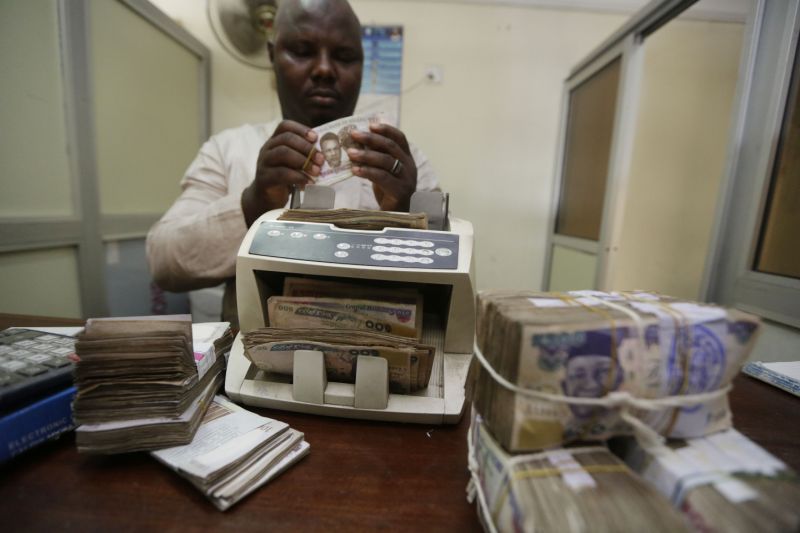The naira slumped to a new all-time low of 470 to the dollar on the parallel market on Wednesday, posting its biggest daily decline since the Central Bank of Nigeria adopted a flexible foreign exchange regime.
The local currency stood at 452 to the dollar at the close of trading on Tuesday, down from 445 against the greenback on Monday.
The naira closed flat at 312.99 against the dollar at the interbank market on Wednesday, according to data from FMDQ OTC Securities Exchange.
Traders and analysts said dollar liquidity remained a major challenge in the market amid surging demand pressure on the greenback by parents paying schools fees of their children studying overseas as well as travellers.
The President, Association of Bureau De Change Operators of Nigeria, Alhaji Aminu Gwadabe, told our correspondent, “The rate is N472 to the dollar as we await the kick-off of the distribution of dollars to the BDCs by Travelex on Friday.
“As we speak, no bank is dispensing dollars to the BDCs. The BDCs’ accounts were debited by some banks since Monday and they are not able to pay any of the BDCs so far debited by them. This is really sending a bad signal in the market.”
A currency analyst at Ecobank Nigeria, Mr. Kunle Ezun, said the parallel market was being used as a mirror of what the naira should be doing, adding, “For me, it may not really reflect naira’s performance. But basically, it is a demand and supply dynamics.”
According to him, the volatility in the parallel market will continue as long as the 41 items excluded from the official forex market remain banned.
“Around this time, a lot of people are paying school fees abroad and we see a lot of demand for forex for other sundry expenses or obligations. So, all of these will put pressure on the naira at the parallel market,” he added.
Noting that the naira had been relatively stable in the official market, Ezun said, “But the parallel market will always respond to liquidity, which is not available. The parallel market will help you to assess the level of liquidity in the market.
“So, if liquidity is high, we will see it in the parallel market. But as we speak today, there is no liquidity in the market, and that is why we keep seeing that volatility in the parallel market.”
The Ecobank analyst said the naira might hit 500 against the dollar in the coming days.
He explained, “The only way out is when there is dollar inflow into the market, and this is one of the reasons the CBN says it is not willing to cut the Monetary Policy Rate now. The idea is that why you are still trying to woo foreign investors into your fixed-income market, you should continue to be able to assure them of returns on their investment.
“What the CBN can do is to use monetary policy to keep encouraging inflows into the market.”


 Forex3 weeks ago
Forex3 weeks ago


 Naira2 weeks ago
Naira2 weeks ago
 Billionaire Watch2 weeks ago
Billionaire Watch2 weeks ago




 Naira2 weeks ago
Naira2 weeks ago




 Naira2 weeks ago
Naira2 weeks ago




 Naira1 week ago
Naira1 week ago




 Naira4 weeks ago
Naira4 weeks ago




 Naira3 weeks ago
Naira3 weeks ago





















